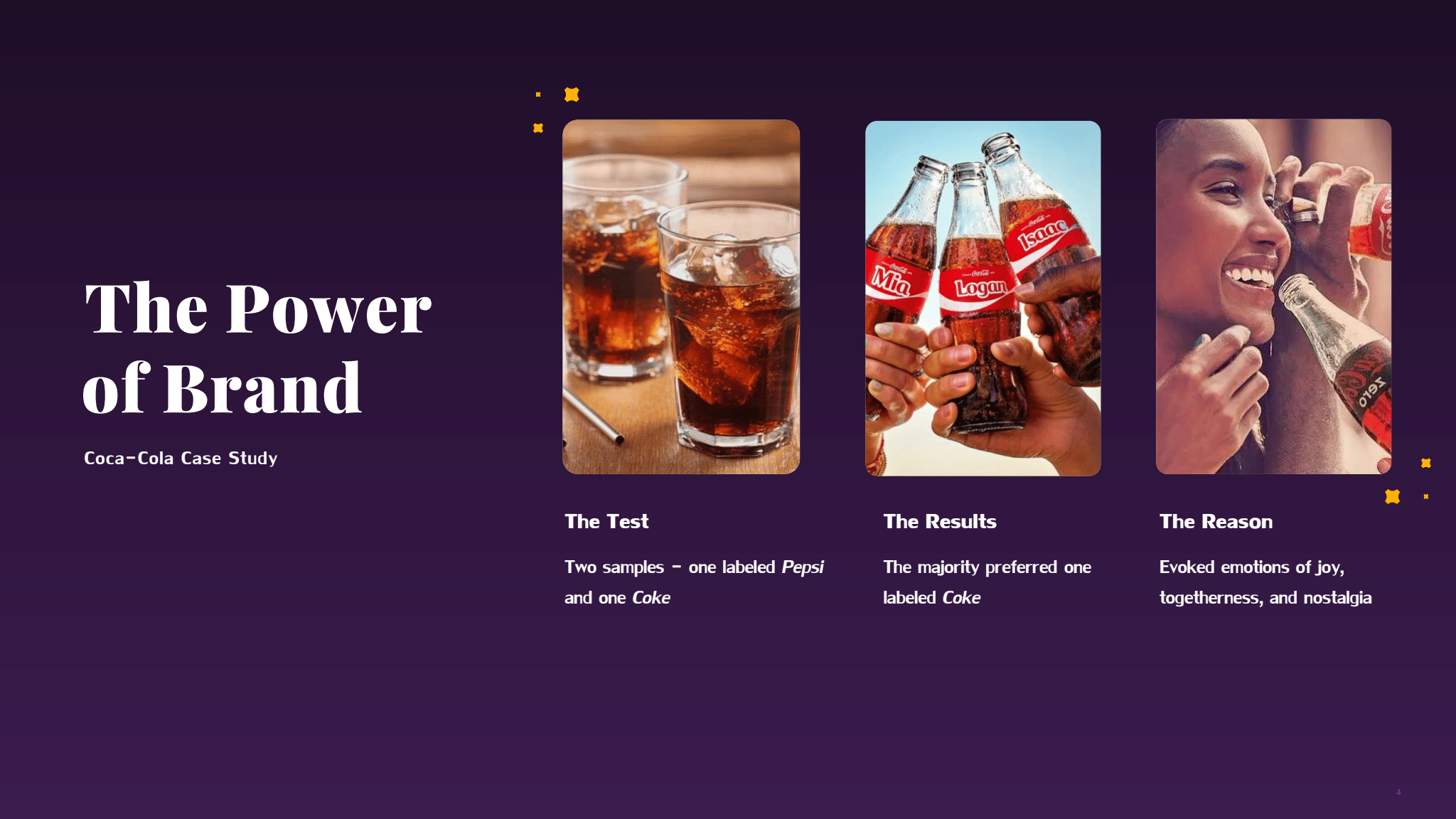Have you ever wondered why some people consistently get invited to the most exciting new projects, regardless of their official title?
The secret isn't just their skills; it's the personal brand they’ve intentionally built.
Investing in your personal brand is one of the most powerful things you can do for your career. It shapes how people see you, the opportunities that come your way, and the confidence others have in your abilities. It’s what defines the impression you make when your name comes up or when you walk into a room.
As product marketers, we’re already experts in building brands for products and companies. Now, it's time to apply that same strategic focus to branding yourself.
In this article, you'll discover our simple formula for defining your professional identity, learn the non-negotiable foundations of PMM execution, and see how three different marketers leveraged – or neglected – their personal brand through project work. Let’s dive in.
The power of brand, and why PMMs need one
To understand the power of your personal brand, let's look outside of the tech realm and consider consumer brands – specifically, Coca-Cola.

Coca-Cola has built a powerful, emotional brand that evokes joy, togetherness, and nostalgia. In fact, one study found that when people tasted two identical samples of cola, one labeled “Coke” and the other “Pepsi”, most said they preferred the “Coke.” The drinks were exactly the same, but the power of the brand made all the difference.
It’s a great reminder that a brand is more than just a product – it’s a story and a sense of trust built over time. And just like a company brand, your personal brand is your reputation. It’s how people feel about you, what they expect from you, and the impression you leave behind.
For expert advice like this straight to your inbox every Friday, sign up for Pro+ membership.
You'll also get access to 30+ certifications, a complimentary Summit ticket, and 130+ tried-and-true product marketing templates.
So, what are you waiting for?
What a strong personal brand achieves
Your personal brand is the consistent summation of your skills, qualities, and strengths displayed through projects over time.
Having a strong, positive brand is impactful because it:
- Builds credibility: Titles are less important than influence. Power comes from individuals who have a positive brand association and can clearly articulate their value to a group.
- Opens doors: A strong brand gets your name listed first for promotions, new projects, or high-visibility assignments. It’s an advantage in every career decision.
- Aligns your image with how you want to be seen: In today’s world of online personas, it’s easy for image and reality to drift apart – but your professional brand should be authentic. You want your reputation to reflect who you truly are and what people actually experience when they work with you.

The foundations of a strong PMM brand
As PMMs, our role is inherently cross-functional. On any given day, we might be identifying a target demographic with business leaders, collaborating on positioning with the product team, building a GTM strategy with the marketing team, crafting a winning pitch with sales, and optimizing adoption with customer success.

Because we sit at the intersection of all these functions, our personal brand needs to be defined and reliable across every touchpoint. That means there are a few non-negotiables we need to nail. Think of these as your baseline:
- Be a strong communicator: You’re constantly working with different teams that share a common goal but play very different roles in achieving it. Being able to communicate clearly and effectively across those groups is essential.
- Be a strong project manager: PMM projects often span multiple departments, so you need to keep track of where things stand, identify bottlenecks, and help move initiatives forward efficiently.
- Be a strong executor: This means delivering high-quality work on time. Those two elements go hand in hand; you can’t deliver excellent work months after it’s needed, and you can’t deliver something rushed and call it done. Great product marketers do both.
Doing these three things makes you that classic, reliable glass of Coke – consistent, trusted, and foundational. It’s the baseline expectation for being considered a strong PMM.
But as we know, being good isn’t enough.
The PMM superpowers that differentiate you
The best product marketers differentiate themselves in two key areas: skills and qualities. Your skills are the specific PMM strengths you’re known for – the things people count on you to do exceptionally well. Your qualities are how you show up – the personality, energy, and values you bring to your work.
There’s an endless list of skills and qualities that make a great product marketer, but true differentiation comes from identifying one or two superpowers in each category. Because if you’re just “good” at everything, you’re great at nothing.
Defining your core skills
Let’s start with skills. You might be:


















 Follow us on LinkedIn
Follow us on LinkedIn




.svg)